Choosing the right electronic health record (EHR) software is a critical decision for mental health professionals. For small and midsize practices, especially in behavioral health, the ideal system should support clinical care, reduce documentation burden, and simplify billing—without the bloat or pricing surprises of larger enterprise solutions.
This guide compares leading EHR platforms built for therapy, counseling, and psychiatry workflows. It also explores the features that matter most to clinicians and practice managers, with an emphasis on behavioral health use cases.
For a more general look at this topic, explore our look at the best behavioral health EHR software for 2025.
What makes an EHR right for mental health practices
Research shows that EHR adoption improves documentation accuracy, continuity of care, and overall clinical performance—especially in behavioral health settings (Clinical benefits of electronic health record use).
Mental health providers have unique documentation needs and care models. Group sessions, therapy notes, treatment plans, and outcome tracking are central. But many EHRs and EMRs were built for primary care or large health systems, not for solo therapists or behavioral health clinics.
An EHR built for mental health should:
- Support customizable therapy note templates and workflows
- Include appointment reminders and intake forms tailored to behavioral health
- Make it easy to track progress over time (e.g., PHQ-9, GAD-7)
- Offer integrated telehealth and secure messaging
- Help practices remain HIPAA-compliant without IT overhead
For smaller practices, simplicity is also key. Too many features—or confusing ones—can slow down documentation and frustrate clinicians.
Key features therapists should look for
Every practice is different, but there are common features that therapists and behavioral health teams should prioritize:
1. Behavioral-health-specific templates
Mental health providers often need templates for SOAP notes, DAP notes, safety plans, and crisis assessments. An EHR should include—or allow easy creation of—templates aligned with clinical workflows.
2. Integrated billing and claims
Especially for insurance-based practices, seamless billing integration matters. Look for tools that support behavioral health CPT codes, allow split billing, and reduce rejections with pre-submission validation.
3. Calendar and intake tools
Features like automated appointment reminders, secure patient intake, and self-scheduling can reduce no-shows and staff burden.
4. Progress tracking
The ability to chart symptom reduction over time (via tools like PHQ-9 or GAD-7) helps clinicians demonstrate outcomes and make informed care decisions.
5. Compliance support
Mental health providers face rigorous documentation standards from payors, states, and accrediting bodies. The best systems offer built-in safeguards to meet those expectations.
6. Telehealth and client portal
Virtual care is now essential. A HIPAA-compliant portal with secure messaging, telehealth, and document sharing can streamline client engagement.
These features form the foundation of a mental health EHR that works for real-world practice. The right system should save time, reduce errors, and give clinicians more freedom to focus on care. Next, we’ll look at how top EHR platforms compare when it comes to supporting behavioral health workflows.
Top EHR platforms for behavioral health
Here’s a comparison of three leading options for independent mental health practices: Benji, Valant, and TherapyNotes.
| Feature | Benji | TherapyNotes | Valant |
| Behavioral health-specific forms | Yes | Yes | Yes |
| Integrated RCM/billing | Fully integrated, RCM-native | Built-in tools; full RCM via partners | Built-in tools; optional full-service RCM |
| AI-driven workflow automation | Yes | Limited | Limited |
| Compliance support | Purpose-built for audits and payor rules | HIPAA-secure, no audit workflows | Documentation and audit support tools |
| Telehealth tools | Integrated | Add-on | Add-on |
| Pricing transparency | Tiered, no onboarding or extra platform fees | Per-user, add-ons priced separately | Per-user + onboarding and feature fees |
| Built for small practices | Yes | Yes | Partial |
| CRM functionality | Yes | No | Limited |
How Benji supports mental health workflows
Benji is a behavioral-health-specific EHR and CRM platform designed for independent practices. Created by the team at Hansei, a company with deep roots in revenue cycle management, Benji was built to address the gaps in traditional EHRs—especially around documentation, billing, and payor compliance.
Here’s how Benji stands out for mental health professionals:
Behavioral health is the priority
Benji includes pre-built forms and templates designed for therapy, psychiatry, and group care. From DAP notes to progress summaries, the documentation experience is tailored to real clinical use, not retrofitted from medical workflows.
Seamless billing integration
Benji’s origins in revenue cycle management show up in its billing tools. Patient data ties directly into the billing system, minimizing rejections and delays. The platform aligns with state and payor-specific guidelines and helps users navigate audits with confidence.
Dynamic workflows and automation
Benji automates routine tasks like appointment reminders, claims submission, and documentation review. It also integrates with tools like Dazos (its behavioral-health-focused CRM) to streamline operations across the board.
Built for small- to mid-sized teams
With intuitive design and no onboarding fees, Benji is an approachable solution for independent practices. It doesn’t require outside IT help or training teams just to get started.
Transparent pricing
Benji offers tiered pricing based on census and collections, not per-user fees. There are no surprise monthly costs or implementation charges, and the platform scales with your practice without penalizing growth.
Human support
Benji’s onboarding is personalized. A dedicated team works with you during setup to configure workflows and train your staff. And unlike many competitors, Benji emphasizes long-term partnership over quick setup.
Together, these features make Benji a strong fit for mental health teams that want structure without rigidity. Onboarding is hands-on: Benji sends a real person to your facility to learn your workflows and tailor the system to your needs. There’s no DIY setup, no hidden fees, and no need for IT specialists to get up and running. Support doesn’t stop after implementation, either—Benji’s team stays involved as your practice evolves. If you’re considering EHR options, the next step is understanding what matters most for your specific practice model.
Choosing the best fit for your practice
When evaluating mental health EHR software, keep your specific needs in mind. Consider:
- Size and structure of your team: Solo providers may prioritize ease of use, while small groups might need integrated billing and CRM features.
- Client population: Pediatrics, adult therapy, psychiatry, and IOP/OTP programs all have different documentation needs.
- Billing model: If you bill insurance, tight payor integration and claims visibility will be essential.
- Support and implementation: Some platforms hand you the software and leave the rest to you. Others, like Benji, guide you through setup and beyond.
- Budget flexibility: Watch for hidden costs. Some platforms charge per user, per location, or per telehealth session. Look for total cost of ownership—not just a low sticker price.
Here’s a checklist to guide your decision:
| Must-Have Feature | Included? |
| Therapy-specific note templates | |
| Customizable forms and assessments | |
| Integrated billing and RCM tools | |
| HIPAA-compliant telehealth | |
| Appointment reminders & scheduling | |
| Compliance workflows (state/payor) | |
| CRM or referral management | |
| Transparent, growth-friendly pricing | |
| Personalized onboarding and training | |
| Mobile access |
No EHR is perfect for everyone, but the right one will feel like a good fit from day one. Whether you choose Benji or another platform, focus on tools that match your workflows, reduce admin time, and support high-quality care. For practices looking for a behavioral-health-first solution with personalized support and smart automation, Benji is ready when you are.
Final thoughts on finding the best fit for your team
Finding the best mental health EHR software isn’t about picking the flashiest features—it’s about selecting a platform that will make your day-to-day easier, support better client care, and grow with your practice.
TherapyNotes and Valant remain strong options with proven adoption across the field. But if you’re looking for a behavioral-health-first solution with built-in billing, compliance support, and a user-friendly experience, Benji deserves your attention.
For a deeper look at how Benji supports documentation and compliance, explore our electronic medical records for behavioral health page. For more information on Benji’s mental health EHR capabilities, schedule demo today by reaching out online or calling 888.670.6388..

